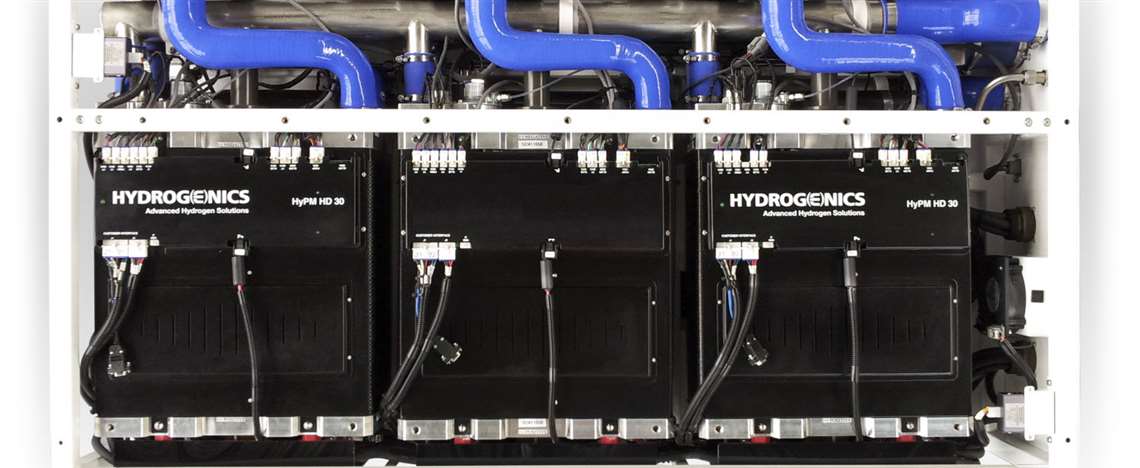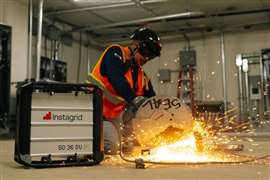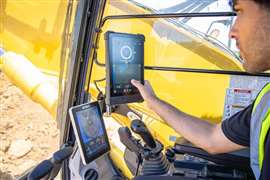Cummins Buying Fuel Cell Company
28 June 2019

Continuing its determined expansion into non-engine power technologies, Cummins Inc. announced a definitive agreement to acquire, through a wholly-owned subsidiary, all the issued and outstanding shares of Canadian fuel cell systems specialist Hydrogenics Corp.
Cummins will pay $15 per share in cash, representing an enterprise value of approximately $290 million. This does not include the shares owned by The Hydrogen Co., a wholly-owned subsidiary of L’Air Liquide, S.A., and Hydrogenics’ current largest equity shareholder, which will maintain its ownership in Hydrogenics.
The deal has been unanimously approved by Hydrogenics management, which has recommended it to shareholders. The transaction is expected to close in the third quarter.
“We are excited that Cummins has reached an agreement with Hydrogenics to welcome the employees and innovations of one of the world’s leading fuel cell and hydrogen generation equipment providers to our company,” said Tom Linebarger, chairman and CEO of Cummins Inc. “We look forward to partnering closely with Hydrogenics’ team in the coming weeks as we work toward closing the transaction.
“Upon closing, we will share more details about the acquisition and our strategy to offer a broad portfolio of power solutions to meet our customers’ needs.”
Based in Mississauga, Ontario, Canada, Hydrogenics is a global supplier of proton exchange membrane (PEM) and alkaline hydrogen fuel cell systems for industrial processes and fueling stations, hydrogen fuel cells for electric vehicles such as urban transit buses, commercial fleets, utility vehicles and electric lift trucks and utility-sized fuel cell installations for freestanding electrical power plants, critical power and UPS (uninterruptiblepower supply) systems.
“It takes vision and an innovative spirit to take on next generation technologies and provide the environment for them to grow,” said Daryl Wilson, president and CEO of Hydrogenics. “Over the past 24 years, the Hydrogenics team has worked to refine and improve transformative technology solutions in hydrogen. Today, our years of work are recognized as two very major high-quality industrial leaders have taken the baton to continue our legacy in bringing clean energy solutionsto the world.
“It is a great honor to be associated with such distinguished companies as Cummins and Air Liquide. We look forward with renewed vigor to work alongside them to accelerate the transformative journey.”
This is just the latest move in a series of acquisitions, cooperative agreements and developments involving non-combustion engine technologies that Cummins has made over the last three years.
This spring, a new all-electric Gillig transit bus utilizing a Cummins electric powertrain went on sale.
Last fall, Cummins and Hyundai Construction Equipment (HCE) announced the joint development of an electric powered mini-excavator designed to operate eight hours on a single charge.
Also last fall, Cummins announced a Memorandum of Understanding (MOU) with Russian vehicle manufacturer KAMAZ for the development of electrified power solutions for a new product line of KAMAZ battery-powered vehicles.
In early 2018, Cummins acquired Johnson Matthey’s U.K. automotive battery systems business that specialized in high-voltage automotive grade battery systems for electric and hybrid vehicles. As part of the acquisition, Cummins and Johnson Matthey agreed to collaborate on the development of high energy battery materials for commercial heavy-duty applications.
In late 2017, Cummins acquired the assets of Brammo, Inc., a manufacturer of battery packs for mobile and stationary applications.
Specific to fuel cells, last fall, Cummins joined the Hydrogen Council, a global CEO-level advisory body providing long-term vision on the important role of hydrogen technologies in energy transition.
Cummins is also taking part in a Costa Rican hydrogen ecosystem project by sponsoring a hydrogen fuel cell bus. Phase 1 of the project demonstrated technical feasibility, with Phase 2 aimed to demonstrate financial viability through comparison of a Cummins electric powertrain and a fuel cell electric powertrain in two buses.
The demonstration project is a transit bus, called N’yu’ti, that can travel more than 200 miles on 38 kg of compressed hydrogen in partnership with Ad Astra Costa Rica and others.
In addition, Cummins announced in 2017 it was partnering with Microsoft to study the use of natural gas-powered fuel cells as an energy source for data centers.
POWER SOURCING GUIDE
The trusted reference and buyer’s guide for 83 years
The original “desktop search engine,” guiding nearly 10,000 users in more than 90 countries it is the primary reference for specifications and details on all the components that go into engine systems.
Visit Now
STAY CONNECTED




Receive the information you need when you need it through our world-leading magazines, newsletters and daily briefings.
CONNECT WITH THE TEAM












